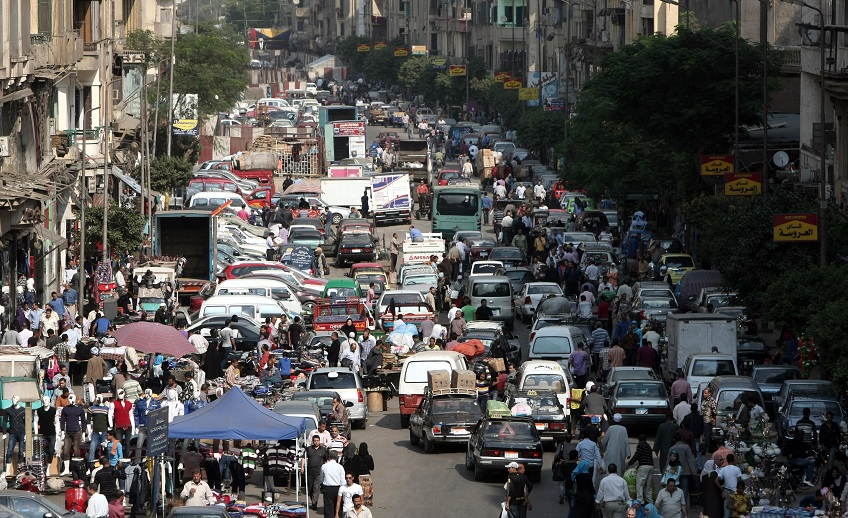Reuters
CAIRO: The Egyptian government has widened its crackdown on the Muslim Brotherhood, opting for new tactics to prevent the country s strongest opposition group from advancing further into mainstream politics.
Analysts say Egypt fears that unless it stops the Islamists now, they will make enough gains in coming elections to bypass rules aimed at blocking them from eventually mounting a real challenge for Egypt s presidency.
The Brotherhood won nearly one-fifth of seats in the lower house of the parliament in 2005, its members running as independents to bypass the 53-year-old ban on the group.
Past mass arrests have failed to curb the Brotherhood s progress. Now Egypt has launched a new strategy including an aggressive campaign against its finances, detaining key financiers, freezing assets and raiding businesses.
The Brotherhood has crossed the red lines and gone beyond the space the regime allows for opposition, so now it has to be weakened, political analyst Amr El-Choubaki said. The regime has realized that the tactics of mass arrests were not effective, so it is opting for new methods.
The Brotherhood says it wants a democratic state which has Islam as state religion but does not bar non-Muslims from power. The government accuses it of seeking an Islamic theocracy.
Members of the Brotherhood, which operates openly despite the official ban, have also been barred from running in trade union polls, a move analysts say may be a dress rehearsal for blocking them from future elections including the 2007 race for parliament s upper house.
In December Islamist students staged a protest at Al-Azhar University wearing militia-style uniforms, which analysts say gave the government the excuse it needed for a new clampdown.
A media campaign and a round of arrests followed that saw 270 Brotherhood members detained including third-in-command Khairat El-Shatir, who is also seen as a key financier.
[Shatir] is the highest ranking Brotherhood official to be detained in a long time and arresting him sends a message that the group s leader could be next, said Mohamed Salah, an expert on Islamist groups.
Authorities also froze the assets of Shatir and 28 fellow Islamists, a move the Brotherhood says is politically motivated.
Meanwhile, Egyptian media have accused the Brotherhood of forming a militia – a charge it denies – and some even linked it to a knife attacker terrifying women in a Cairo suburb.
President Hosni Mubarak has said the Brotherhood poses a threat to Egypt s security and economy. He has proposed constitutional changes to ban religious parties, a move many say aims to enshrine his own party s hold on power.
The proposals are expected to ease restrictions on recognized but weak opposition parties to run for president while entrenching restrictions on independent candidates.
Such restrictions, the Brotherhood says, aim to ensure a smooth succession for Mubarak s politician son Gamal, who many analysts believe is being groomed to take over the presidency but who has repeatedly denied presidential ambitions.
To bypass restrictions barring independent candidates from running for president, the Brotherhood would need the approval of 25 members of parliament s upper house and 160 from local councils, where it has little presence.
Political sources said Gamal Mubarak had met opposition party leaders to promote the constitutional amendments as a way to isolate the Islamists.
The ruling party is trying to have the opposition parties agree to the amendments to paint a picture of national harmony that excludes the Brotherhood, analyst Diaa Rashwan said.
Analysts say the ruling party hopes to bar a repeat of what happened in general elections in the 1980s when Islamists teamed up with these parties to bypass restrictions on independents.
Both the ruling and opposition parties deny any deals but leaders of the nationalist Wafd and leftist Al-Tagammu parties have both agreed in principle to Mubarak s amendments.
But analysts said neither the state nor the Brotherhood wants a full-scale confrontation. The government, they say, is wary of trying to forcibly shut the group down entirely, fearing that could radicalize some members.
The Brotherhood will do its best to avoid a comprehensive confrontation. They are still haunted by the ghosts of past trials and tribulations, said Choubaki, referring to Brotherhood arrests and executions in the 1950s and 1960s.
The problem in such a critical phase is that one misstep could lead to escalation, against the will of both sides.


